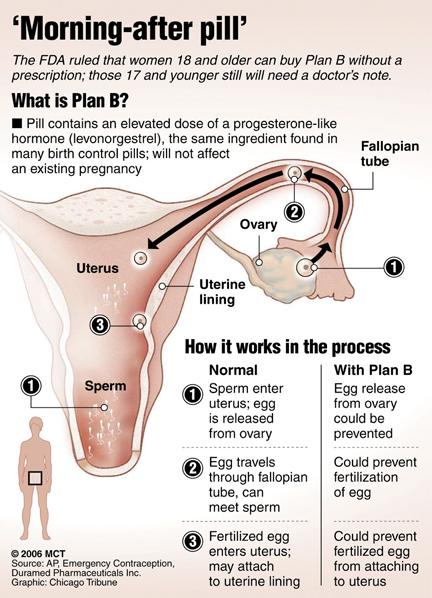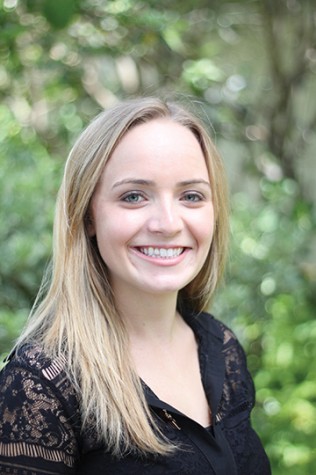During an emergency, you must take immediate action. When an intruder breaks in late at night, nobody would tell you to wait days for police approval and call 911 later. You just call. Obviously, in this situation, it’s common sense to protect your
well-being as soon as possible. It doesn’t make sense why the same criteria cannot be utilized in an emergency situation thousands of teenage girls face each year: unplanned pregnancies.
Emergency contraception, more commonly known as the morning-after pill, is a birth control method created as a backup plan after unprotected sex or a birth control failure. Currently, it’s only available without prescription to women ages 17 and older, but the American Academy of Pediatrics is working to change that. The AAP, along with the Food and Drug Administration, recently announced support for doctors to provide advance prescriptions to girls younger than 17 in order to allow for timely usage.
Increased access to birth control of any kind is positive enforcement in young girls’ control of their bodies. In this case, it’s even more essential because emergency contraception is most effective within the first 24 hours after sexual intercourse. For girls younger than 17, this is a pretty brief window to see a doctor, obtain a prescription and get to a pharmacy; especially considering many of these girls may not even have a driver’s license or a comfortable-enough relationship with their parents to ask for help. Yes, the possibility of kids too young to drive having sex is not ideal, but it’s happening whether we like it or not, so we might as well protect them the best we can.
The U.S. Department of Health and Human Services advocates for the current standard of prescriptions on need basis only. Many opponents are concerned that, with increased access to different birth control methods, teenagers are going to suddenly realize what sex is and a teenage sex craze will most certainly ensue. This is no new argument in the teen birth control debate, but is irritating as ever. It seems some people are either completely ignorant of what it’s like to be a hormonal teenager, or just choose to block out those memories from their distant and apparently prudish past. In reality, studies show increased access to the morning-after pill generally doesn’t change the sex frequency of an individual; it only increases her independence in a baby-free future.
This ignorant attitude unfortunately correlates with many doctors and pharmacists giving false information to girls requesting the medication. According to Reuters, a study released this year indicated several 17-year-old girls called pharmacies and questioned their access to the morning-after pill. Less than 60 percent of pharmacists accurately reported the policy of over-the-counter access to of-age women.
Even girls who go directly to their doctors do not always receive the legally correct response. Many health care providers refuse to provide prescriptions to underage girls, except in the case of rape. This is because morning-after pills are often equated with abortion, an entirely false allegation promoting an inaccurate view of emergency contraception. However, if it becomes common policy to give advance prescriptions to underage girls, it would force a dialogue on the topic based on facts instead of personal opinions.
The availability of advance prescriptions for underage girls would be a positive step toward the prevention of unplanned pregnancies, but I would take it one step further. Prominent obstetrician and gynecological groups have come forward with support for making birth control pills an over-the-counter drug. Similar to emergency contraception, oral contraception is now only offered with a prescription. If both birth control methods were offered over-the-counter, individuals who either didn’t have the money or time to visit a doctor could still protect themselves.
The downside to cutting doctors out of the equation is the lack of medical guidance. Choosing the right birth control is an individual decision, which can take professional aid and many failed attempts. By breaking down birth control barriers, we can bring sexual education to a whole new level. If birth control use becomes more mainstream, we can increase the normalcy of sex education dialogues as well. Doctors have the responsibility to share information whenever possible, as do schools, by incorporating comprehensive sex education programs. By reversing the taboo regarding sex discussions, we can create a significantly more educated generation of teenagers who understand, respect and take care of their bodies on their own.
Those who feel unprepared without medical advice are entirely free to seek the attention of their own doctor. On the other hand, those who do not have this luxury would still be able to access adequate birth control. There is no perfect solution to provide birth control to teenagers or adults alike, but the bottom line is this: the more opportunities,
the better.
The U.S. has the highest teenage pregnancy rate out of all developed countries, but has one of the lowest number of 15-to 18-year-olds who report ever having sex. There is obviously an issue with sexual education and availability. Birth control doesn’t have to be the horrifying sexual gateway drug our society makes it out to be. It’s time to accept sex as a natural occurance for everyone, including teenagers. All we can do is provide the most opportunities for sexual safety without the unnecessary stigmatization of individuals who utilize their right to make their own choices.












